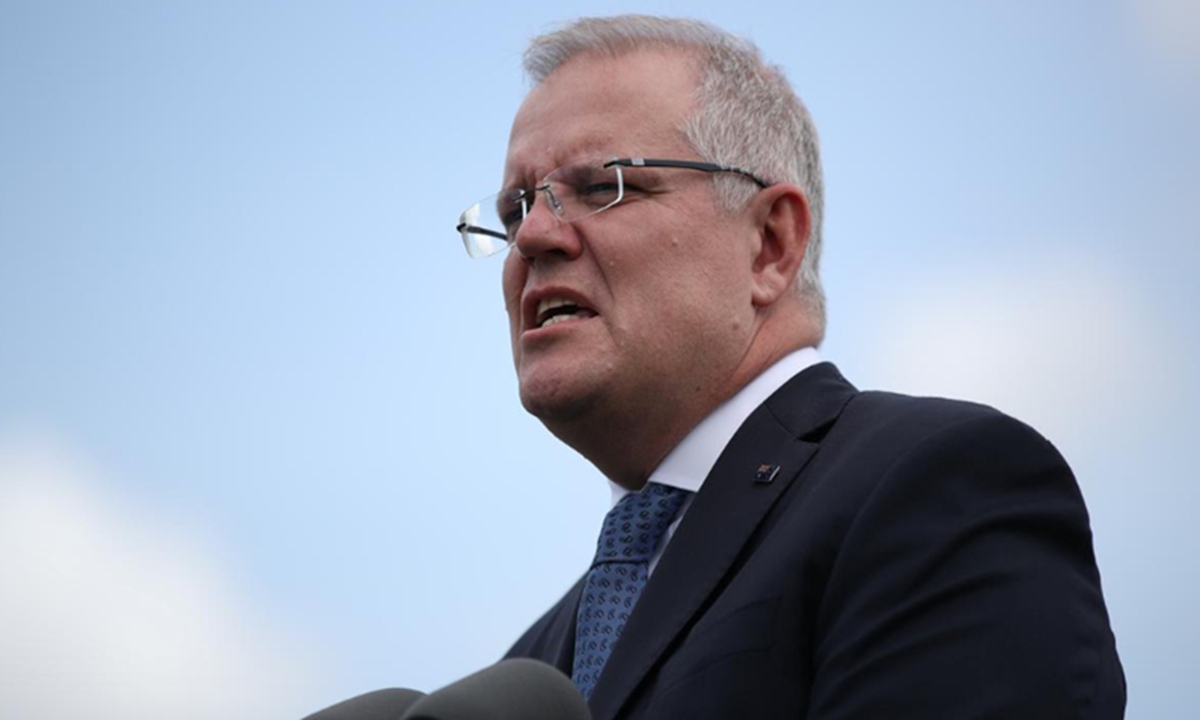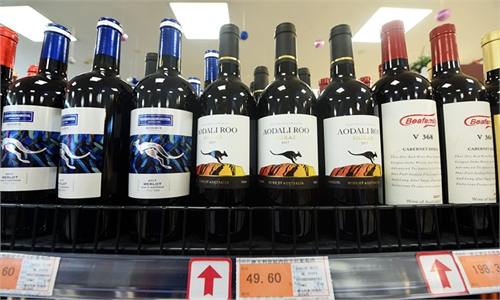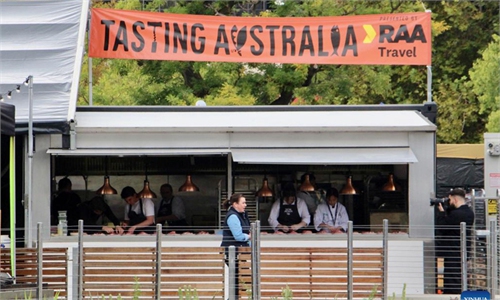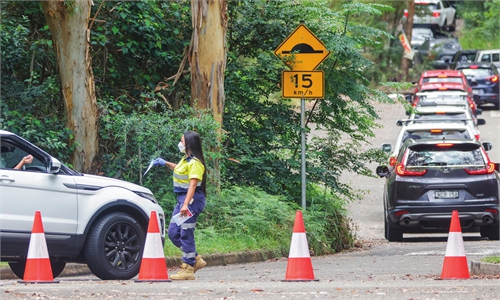China-bashing tactics ahead of elections ‘hurt Aussie parties’
China seeks no ‘sphere of influence’ in S.Pacific: Chinese diplomats tell Australian counterparts in meeting

File picture of Australia PM Scott Morrison. Xinhua
At a time when both the Australian ruling party and the opposition have been smearing security cooperation between China and the Solomon Islands ahead of the Australian elections, the Chinese Foreign Ministry again spoke up for the security cooperation by revealing on Monday that senior Chinese diplomats had a virtual meeting with their Australian counterparts on Friday, during which the Chinese diplomats stressed that the country does not seek a "sphere of influence" and will advance cooperation with South Pacific island countries.The head of the Department of North American and Oceanian Affairs under the Chinese Foreign Ministry met with officials of Australia's Department of Foreign Affairs and Trade on Friday, according to the Chinese Foreign Ministry.
China expressed its solemn position on security cooperation with the Solomon Islands, pointing out that the cooperation is normal between two sovereign states, based on the principles of mutual respect, equality and mutual benefit, and in line with international law and practice.
The cooperation is aimed at helping the two countries maintain domestic stability and social order, serves the common interests of countries in the region, does not involve or target any third party, and does not run in parallel with or conflict with existing regional security cooperation arrangements, the Chinese diplomats stressed.
The Solomon Islands and other South Pacific island nations are not the "backyard" of any country, said the Chinese diplomats, noting that China is a direct stakeholder in the security of the South Pacific.
China has no selfish interests in the South Pacific, does not seek "spheres of influence" or engage in bullying and coercion, and will unswervingly advance practical cooperation with South Pacific island countries in various fields.
During the meeting, Chinese and Australian diplomats also exchanged views on their respective policies toward South Pacific island states, fighting COVID-19 and economic recovery, fisheries and oceans, infrastructure construction, climate change, disaster prevention and mitigation and other South Pacific issues, according to the Chinese Foreign Ministry.
"China had a proper and justified communication with Australia through this virtual meeting where it expressed its concern and dissatisfaction over Australia's reaction to China-Solomon Islands cooperation," said Chen Hong, president of the Chinese Association of Australian Studies and director of the Australian Studies Center at East China Normal University.
The meeting also proved that the communication channel between China and Australia is open although relations have been at a low ebb, the Shanghai-based expert noted.
However, such communication is far from suggesting improved ties.
On Sunday, China-related topics especially its security pact with the Solomon Islands became the focus during the latest debate between Prime Minister Scott Morrison, who is also the leader of the ruling Liberal Party of Australia, and Opposition Labor Party leader Anthony Albanese ahead of the elections.
One of the most heated moments between the leaders came over national security, the AFP reported on Sunday.
The prime minister warned that establishing a Chinese military base in the Solomons would be crossing a "red line" and vowed to ensure it would be prevented.
Morrison, whose conservative government is trailing the opposition in the latest opinion polls, has been criticized for failing to prevent China from signing the deal in a region where Australia has traditionally had great influence.
Albanese described it as a "massive foreign policy failure."
As the domestic political atmosphere in Australia has shifted sharply to the right in the past five years, playing up the China threat theory is conducive to winning the support of right-leaning voters in Australia, as well as the support of the US government, Yu Lei, a chief research fellow at the Research Center for Pacific Island Countries of the Liaocheng University, told the Global Times.
Ning Tuanhui, an assistant research fellow at the China Institute of International Studies, shared similar views, saying that the anti-China atmosphere in Australia has reached an extreme level. The debate on Sunday reflected the strong presence of the China issue in Australian politics, and both parties have a calculation to play the "China card" for their own political gains, according to Ning.
"The two parties shared something in common -- when it comes to China-related issues, they often ignored the truth," Chen pointed out.
Hyping national security concerns over the pact between China and the Solomon Islands would backfire, as the topics would only spark needless worries among the Australian public and make the public lose confidence in the foreign policies of both parties, which will only weaken them, Chen warned.
Anti-China is not the only way to gain political advantage, Chen said, noting that if a politician or political party with foresight and wisdom can respect China-Australia relations, it can bring a fresh and new attitude to its voters and make Australia's foreign policy more independent.




